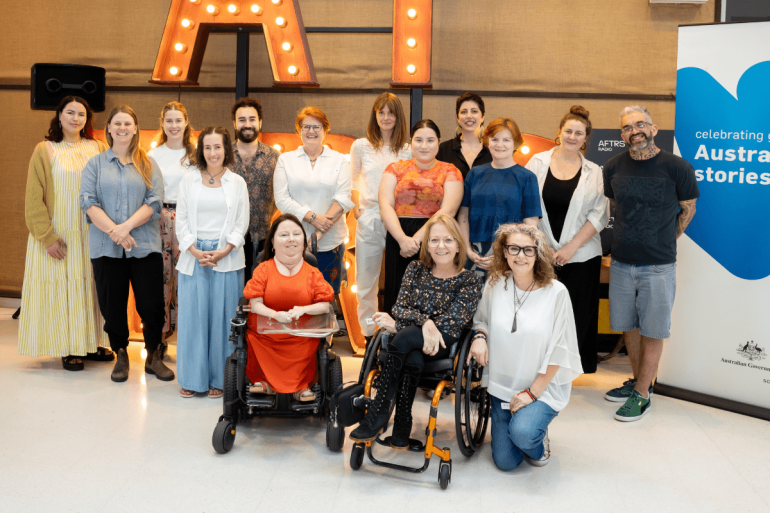Screen Australia has selected nine participants from Australia and three from New Zealand for its Access Coordinator Training Program, designed to provide additional support for the emerging below-the-line crew position on film and television productions.
Bridie McKim, Brooke Scobie, Chanel Bowen, Declan Caruso, Liz Cooper, Michèle Saint-Yves, Phoebe Neilson, Sarah Carroll, Stephanie Dower, Chelsea Bridges, Felicity Hamill, and Jared Flitcroft are taking part in a five-day immersive training program at AFTRS, where they will receive best practice training from experts.
Participants will undertake a variety of activities to learn how an access coordinator supports a production by bringing necessary expertise and experience in facilitating required adjustments and access provisions for Deaf/Disabled or Neurodivergent (DDN) talent in front of and behind the camera.
The group will then have the opportunity to put their new skills into practice on the set of Play School at the ABC, where they will assess the set and production offices for accessibility.
Announced earlier this year, the Screen Australia initiative is delivered by UK inclusion consultancy Bridge06, in partnership with the New Zealand Film Commission (NZFC), Screen Canberra, Screen NSW, Screen Queensland, Screen Tasmania, Screen Territory, Screenwest, the South Australian Film Corporation (SAFC), VicScreen and the Australian Film Television Radio School (AFTRS).
Screen Australia’s head of industry development Ken Crouch said it was fantastic to welcome the “talented and experienced” cohort of participants on the ground in Sydney.
“I am excited about this group from both Australia and New Zealand to help facilitate the necessary change to bridge the gap in the screen industry, and so we can better accommodate the DDN community on our film and television sets,” he said.
“I look forward to seeing the hard work of the participants pay off and helping our industry become more inclusive for all.”
NZFC CEO Annie Murray agreed, noting the participants were “extremely talented” screen practitioners who will “play a vital role in increasing and sustaining disability representation in our screen industries”.
“The NZFC looks forward to supporting the New Zealand cohort as they help support the Aotearoa screen sector in becoming more inclusive and accessible for our deaf, disabled and neurodivergent talent in front of and behind the camera,” she said.
“I can’t wait to see the impact this will have on our filmmakers and stories to come.”



